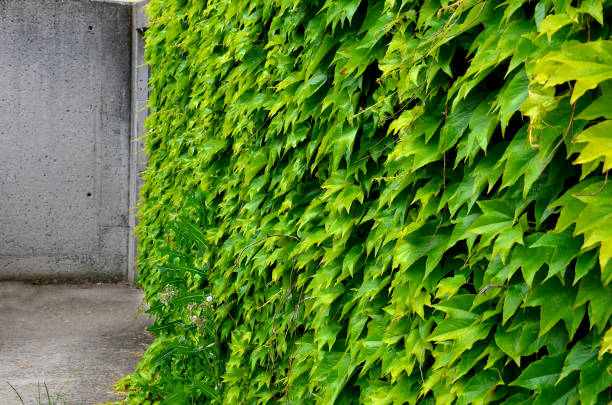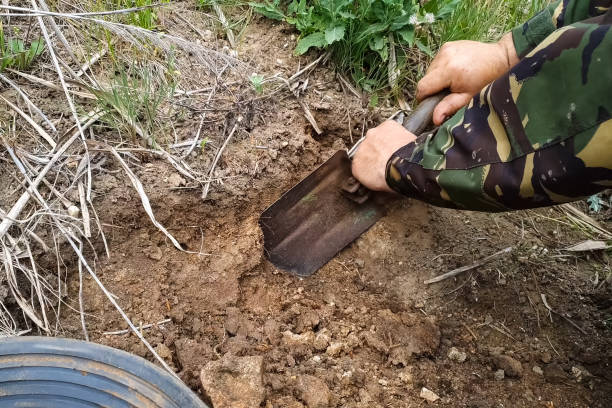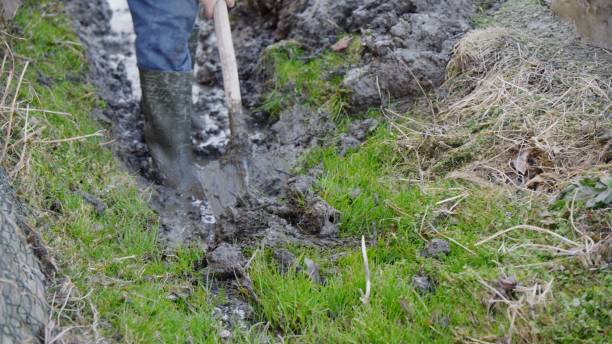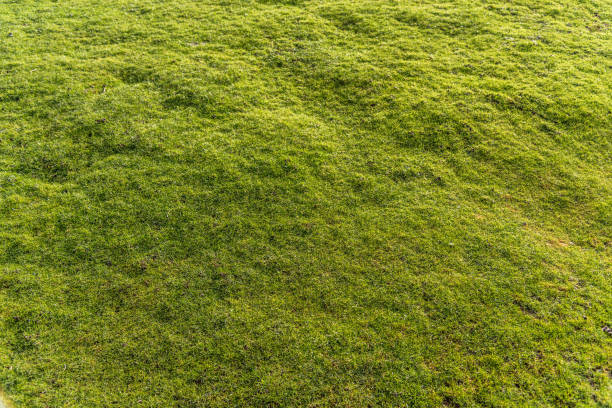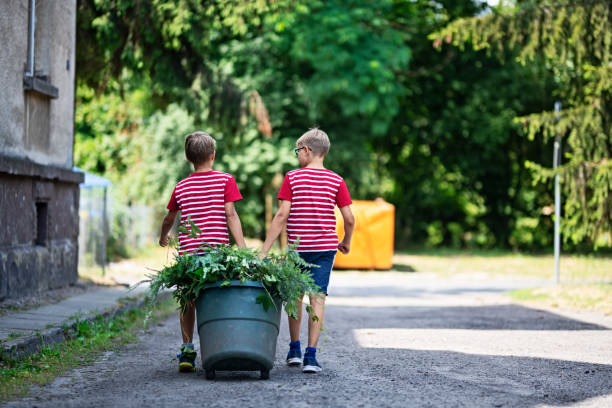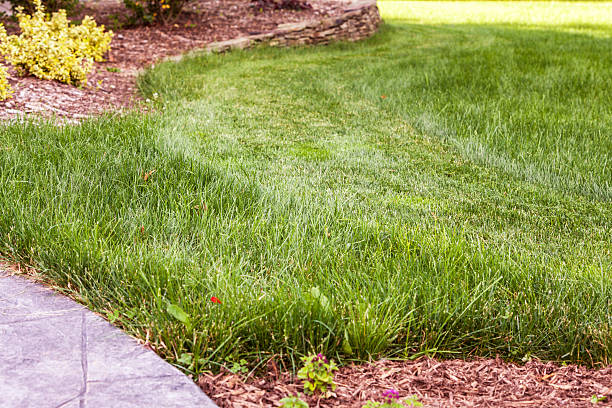How to Reduce Road Noise in Your Yard
This post contains affiliate links. This means I will make a commission at no extra cost to you should you click through and make a purchase. Read the full disclosure here.Living near a busy road can significantly impact the tranquility of your yard. The constant noise from passing vehicles can be bothersome, making it challenging to relax or enjoy outdoor activities. Fortunately, there are several effective strategies you can employ to minimize road noise and create a more peaceful environment in your yard. In this article, we will explore various techniques that can help you reduce road noise and enjoy a quieter outdoor space.
Identify the Noise Sources
Before delving into the solutions, it is essential to understand the different sources of road noise. Traffic passing by, honking horns, and the rumbling sound of engines all contribute to the overall noise level. By identifying these sources, you can better address them and implement appropriate solutions. For example, if the primary noise source is the rumbling of engines, focusing on creating sound barriers becomes crucial.
Evaluate the Yard Layout
The layout of your yard plays a vital role in noise reduction. Analyze the current design and consider whether any modifications can help mitigate road noise. Are there open spaces or angles that directly face the road? Identifying such areas will allow you to make targeted improvements. Furthermore, a well-designed yard can serve as a natural buffer against noise pollution.
Use Natural Barriers
Nature can be a powerful ally in reducing road noise. By strategically planting trees, hedges, and shrubs, you can create natural barriers that act as sound absorbers. Opt for dense and thick vegetation that effectively blocks and absorbs noise waves. Trees with large canopies and evergreen foliage are particularly effective. Planting these natural barriers strategically along the perimeter of your yard can significantly reduce road noise.
Install a Fence
In addition to natural barriers, installing a fence is an effective way to reduce road noise. Solid fences made from materials such as wood or vinyl can create a physical barrier that blocks sound waves. The height and thickness of the fence play a crucial role, so consider opting for taller and thicker designs. Before installing a fence, check local regulations and consult with professionals to ensure compliance and optimal noise reduction.
Utilize Soundproofing Techniques
If you already have structures in your yard, such as walls, windows, or doors, they can contribute to noise leakage. Applying soundproofing techniques to these structures can help minimize the impact of road noise. Soundproofing materials, such as acoustic panels or insulation, can be installed to reduce sound transmission. Ensure you follow proper installation techniques and seek professional advice if needed.
Create a Water Feature
Water features not only add aesthetic appeal to your yard but can also help mask road noise. The sound of flowing water can effectively drown out unwanted sounds, creating a more serene ambiance. Consider installing a fountain, pond, or waterfall in your yard, especially near areas where road noise is most prominent. The soothing sound of water can greatly enhance the overall tranquility of your outdoor space.
Implement Noise-Reducing Surfaces
Surfaces within your yard can also contribute to noise reflection or absorption. Choosing the right materials for walkways, patios, and other surfaces can help minimize road noise. Opt for materials that have good noise reduction properties, such as rubber pavers or composite decking. Additionally, using textured surfaces rather than smooth ones can help absorb sound waves.
Maintain Your Yard for Noise Reduction
Regular maintenance is crucial for preserving the noise-reducing qualities of your yard. Keep plants healthy and well-maintained, as healthy vegetation provides better noise absorption. Remove any dead or dying plants and regularly trim hedges and trees to optimize their sound-dampening effect. Furthermore, be attentive to any noise leakage points, such as gaps in fences or walls, and address them promptly to maintain an effective noise reduction strategy.
Consider Professional Solutions
If you find it challenging to achieve the desired level of noise reduction on your own, consulting professionals specializing in noise reduction can be a viable option. These professionals can assess your yard and provide tailored recommendations to effectively reduce road noise.
Utilizing their expertise and specialized equipment, these professionals can offer solutions that cater to your specific needs. They may suggest advanced soundproofing techniques, recommend specific plant species for optimal noise reduction, or propose customized design modifications. While professional solutions may involve a higher cost, they can provide long-lasting and highly effective results.
Conclusion
Reducing road noise in your yard is essential for creating a peaceful and enjoyable outdoor environment. By implementing the strategies discussed in this article, such as using natural barriers, installing fences, utilizing soundproofing techniques, incorporating water features, and maintaining your yard properly, you can significantly minimize road noise and enhance tranquility.
Remember to assess your yard layout, identify the noise sources, and tailor the solutions to your specific needs. Additionally, consider consulting professionals if you require expert advice and assistance. With these strategies in place, you can transform your yard into a serene oasis where road noise becomes a distant memory.
FAQs (Frequently Asked Questions)
Can noise-reducing plants completely eliminate road noise?
While noise-reducing plants can significantly diminish road noise, they may not eliminate it entirely. However, they can provide a substantial reduction and create a more peaceful environment.
Are there any specific tree species that are more effective at reducing road noise?
Trees with dense foliage, broad canopies, and evergreen characteristics tend to be more effective at reducing road noise. Examples include Leyland cypress, American holly, and Eastern red cedar.
Can a DIY approach to soundproofing be as effective as professional solutions?
A well-executed DIY approach to soundproofing can provide significant noise reduction. However, for complex or extensive noise issues, consulting professionals can offer specialized knowledge and equipment to achieve optimal results.
Is it possible to retrofit existing structures with soundproofing materials?
Yes, existing structures can be retrofitted with soundproofing materials to reduce noise transmission. From walls to windows and doors, various soundproofing techniques can be employed to enhance noise reduction.
What is the typical cost of hiring professionals for noise reduction in a yard?
The cost of hiring professionals for noise reduction can vary depending on factors such as the size of the yard, the extent of noise issues, and the specific services required. It is advisable to obtain multiple quotes and evaluate the expertise and reputation of the professionals before making a decision.

